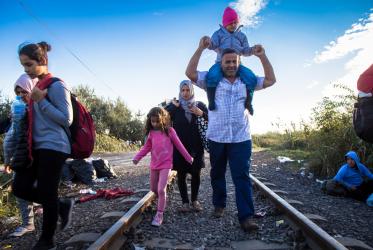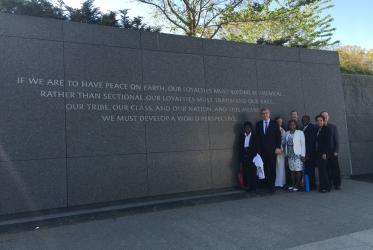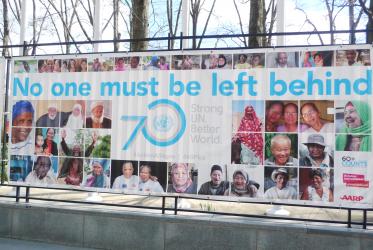Displaying 141 - 160 of 193
Colombia peace accord brings both joy and concern
19 August 2016
WCC condemns escalating racial violence in the USA
09 July 2016
New Executive Committee members elected in Trondheim
28 June 2016
International affairs facilitator reflects on pilgrimage
31 March 2016
Religious leaders as agents of peace in the Americas
02 March 2016






